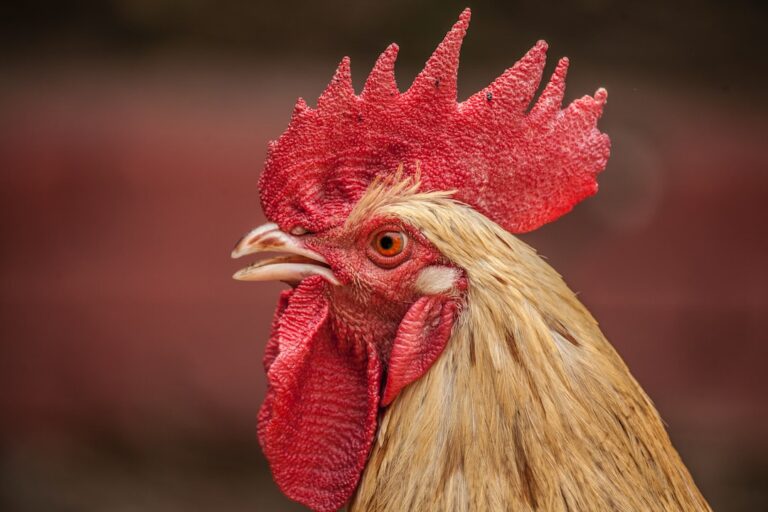Can Iguanas Hear?
Iguanas are fascinating reptiles that are known for their unique characteristics and behaviors. They are native to tropical regions of Central and South America, and are often kept as pets due to their striking appearance and relatively low maintenance requirements. Iguanas have a number of senses that are crucial for their survival, including sight, smell, touch, and hearing. In this article, we will focus on the importance of understanding iguana hearing and how it plays a role in their communication and overall well-being.
Table of Contents
Anatomy of the Iguana’s Ear
The anatomy of an iguana’s ear is quite different from that of a human’s ear. While humans have external ears that are visible on the sides of our heads, iguanas have what is known as a tympanum, which is a thin membrane located on the side of their head. This membrane acts as the eardrum and is responsible for transmitting sound waves to the inner ear.
Inside the iguana’s head, there is a complex system of bones and chambers that make up the inner ear. These structures help to amplify and interpret sound waves, allowing the iguana to hear and respond to its environment. The inner ear also plays a role in maintaining balance, which is crucial for iguanas as they navigate their surroundings.
How Sound Waves Travel to the Iguana’s Ear
Sound waves are created when an object vibrates, causing air particles to move in a wave-like motion. These sound waves travel through the air until they reach the iguana’s ear. When the sound waves reach the iguana’s tympanum, they cause the membrane to vibrate.
The vibrations from the tympanum are then transmitted through a series of small bones in the iguana’s inner ear. These bones, known as ossicles, amplify the vibrations and send them to the cochlea, which is a spiral-shaped structure in the inner ear. The cochlea is filled with fluid and contains tiny hair cells that convert the vibrations into electrical signals that can be interpreted by the brain.
The Iguana’s Ability to Detect Low-Frequency Sounds
One of the most interesting aspects of iguana hearing is their ability to detect low-frequency sounds. Iguanas have a remarkable sensitivity to sounds in the range of 20-200 Hz, which is much lower than what humans can hear. This ability is particularly important for iguanas in the wild, as it allows them to detect the low-frequency calls of other iguanas and potential predators.
In their natural habitat, iguanas use low-frequency vocalizations to communicate with each other. Males will often emit deep, rumbling calls to establish territory and attract mates. Females, on the other hand, produce softer calls to signal their receptiveness to mating. By being able to hear these low-frequency sounds, iguanas are able to navigate their social interactions and avoid potential threats.
The Role of Vibrations in Iguana Hearing
In addition to detecting sound waves through their ears, iguanas also have the ability to detect vibrations through their bodies. This is due to the presence of specialized sensory cells called neuromasts, which are located on their skin and in their inner ears.
These neuromasts are sensitive to vibrations and can detect even the slightest movements in their environment. This ability is particularly useful for iguanas when they are on the ground, as they can feel vibrations caused by approaching predators or other animals nearby. By being able to sense these vibrations, iguanas can quickly react and take evasive action if necessary.
The Iguana’s Response to Different Types of Sounds
Iguanas have different responses to different types of sounds. When they hear natural sounds, such as the calls of other iguanas or the rustling of leaves, they may become alert and attentive. They may also respond to these sounds by vocalizing themselves, either to communicate with other iguanas or to establish their presence in their territory.
On the other hand, iguanas may have a negative response to loud or sudden noises, such as thunderstorms or fireworks. These loud noises can startle them and cause them to become stressed or anxious. In some cases, prolonged exposure to loud noises can even lead to hearing damage in iguanas.
Can Iguanas Hear Human Voices?
While iguanas have a remarkable ability to detect low-frequency sounds, they are not able to hear human voices in the same way that we do. This is because human voices typically fall within a higher frequency range than what iguanas can perceive.
However, this does not mean that iguanas are completely deaf to human voices. They may still be able to detect vibrations caused by our voices, especially if we speak loudly or if there are other factors that amplify the sound waves. It is also worth noting that iguanas are highly perceptive animals and can pick up on other cues, such as body language and facial expressions, which can help them understand our intentions.
Factors that Affect Iguana Hearing
There are several factors that can impact an iguana’s ability to hear. Age is one important factor, as older iguanas may experience a decline in their hearing abilities over time. Health conditions can also affect an iguana’s hearing, particularly if they have an ear infection or other issues with their ears.
Environmental factors can also play a role in an iguana’s hearing. Exposure to loud noises on a regular basis can lead to hearing damage and should be avoided whenever possible. Additionally, the presence of background noise, such as the hum of machinery or the sound of traffic, can make it more difficult for iguanas to detect and interpret sounds in their environment.
How to Test Your Iguana’s Hearing
If you are concerned about your iguana’s hearing, there are a few simple tests that you can perform at home. One method is to make a loud noise, such as clapping your hands or banging a pot, and observe your iguana’s reaction. If they startle or show signs of being aware of the noise, it is likely that their hearing is intact.
Another test is to observe your iguana’s response to familiar sounds, such as their name or the sound of their food being prepared. If they consistently respond to these sounds, it is a good indication that their hearing is functioning well.
Regular hearing tests can be beneficial for pet iguanas, as they can help identify any potential issues early on. If you notice any changes in your iguana’s behavior or if you have concerns about their hearing, it is always best to consult with a veterinarian who specializes in reptiles.
Understanding Iguana Hearing and Communication
In conclusion, understanding iguana hearing is important for both pet owners and anyone interested in these fascinating creatures. By understanding how iguanas hear and communicate, we can better meet their needs and ensure their well-being.
Iguanas have a unique anatomy that allows them to detect and interpret sound waves and vibrations in their environment. They have a remarkable sensitivity to low-frequency sounds, which plays a crucial role in their social interactions and survival in the wild. Additionally, they are able to detect vibrations through their bodies, which helps them navigate their surroundings and avoid potential threats.
While iguanas may not be able to hear human voices in the same way that we do, they are still perceptive animals that can pick up on other cues. It is important to be mindful of their hearing abilities and to minimize exposure to loud or sudden noises that can cause stress or damage to their ears.
By understanding and respecting iguana hearing, we can create a safe and enriching environment for these incredible reptiles. Whether you are a pet owner or simply have an interest in iguanas, taking the time to learn about their senses and communication can deepen your appreciation for these unique creatures.
If you’re interested in learning more about the eating habits of iguanas, you might also want to check out this article on do iguanas eat rats?. It provides valuable insights into the dietary preferences of these fascinating reptiles.







